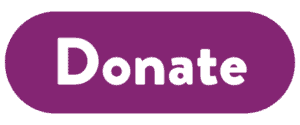Democracy is a form of active listening. It works when citizens speak up, and when representative lawmakers listen and respond by addressing constituents’ needs. Last week’s attack on the U.S. Capitol by white nationalists was a sickening attempt to override that process. The violence failed because our democracy is stronger than the will of a small, angry mob. Still, the attack left many wondering whether democracy itself is somehow falling apart. We must be very clear that democracy is not crumbling because we are not crumbling. Actively engaging in the democratic process is the foundation of its peaceful, rigorous defense.
Rethinking the Legislative Agenda
As a policy advocacy organization, a critical part of NC Child’s work is to understand and translate the issues that matter most to communities into specific and measurable policy actions. Importantly, we take those policy recommendations directly to North Carolina’s legislators. Together we strengthen the democratic process by amplifying community needs, and making it easier for those who are directly impacted to speak for themselves.
Every year, we release a formal legislative agenda that includes multiple policy recommendations. While not exhaustive, the agenda is a priority statement that reflects our analysis of what kids and families need, and what is possible, related to our four program areas: early childhood education, child health, child welfare, and family economic security.
In 2020, we realized that we needed to do more to ensure the diverse voices of our stakeholders were truly reflected in our legislative policy priorities. The COVID-19 pandemic, systemic racism, and growing political unrest have created a context that many of us have never experienced before. Simply basing our policy recommendations on available data and the political context is insufficient during this time of crisis. Instead we asked our stakeholders directly – What are you most worried about? What do you want to change for children and families?
Setting Priorities with Communities
The process of hearing from our constituent groups involved surveying members of NC Child’s Parent Advisory Council (PAC), Youth Advocacy Council (YAC), and Child Advocacy Network (CAN) hub organizations to determine their highest priority policy areas, and listening to their reasoning behind each recommendation.
Three-quarters of our youth members believed we should focus on expanding affordable health care, with members noting the devastating impacts of social isolation on teens’ mental health.
- CAN hub organization leaders shared concern about early childhood education and the COVID-related closure of child care providers statewide.
- Our parent-advisors unanimously agreed that expanding Medicaid should remain a priority until it is accomplished.
Despite the age, race, and geographic diversity of our stakeholder groups, many of the members voiced the same concerns. High school students felt the strain on the child care system, saying “We can’t focus on school if we’re at home watching siblings because child care centers have closed.” Parents echoed youth’s calls for affordable mental health care – “We need mental health providers now more than ever.”
Setting the agenda around the lived experiences of our stakeholders strengthens NC Child’s ability to advocate for families. Actively listening and informing our recommendations with lived experience strengthens our role in protecting democracy.
Putting Our Agenda into Action
As North Carolina continues to respond to and recover from the COVID-19 pandemic, our 2021 policy recommendations support an equitable pandemic response and offer much needed relief to children and families. Our legislative agenda is not an exhaustive list of policies that would improve the lives of North Carolina’s children. Rather, it is a prioritized list of recommendations that reflects a strong consensus among families and youth who are very directly impacted by both the COVID-19 crisis and the systemic racism that plagues our health and education systems. We hope that it reflects people’s voices being heard, and NC Child’s commitment to uphold the tenets of democracy.
Our advocacy won’t be limited to only this list of legislative priorities. Frequently, we lend support to other state and local partners who are advocating for legislative and administrative policies that promote children’s well-being. NC Child’s 2021 legislative agenda lays out where we will focus at the NC General Assembly this year, taking the first step to practice what we preach: public policy for the people, by the people.
We hope that you will join us this year in bringing these important issues before your elected officials. We would love for you to be a part of our weekly Legislative Update calls, every Friday at 11 am while the state legislature is in session. Sign up here.
As child advocates, we have a responsibility to use our power to create a better future for children and families. As citizens, we have a responsibility to keep our democracy strong by engaging peacefully, and rigorously, in the democratic process.


